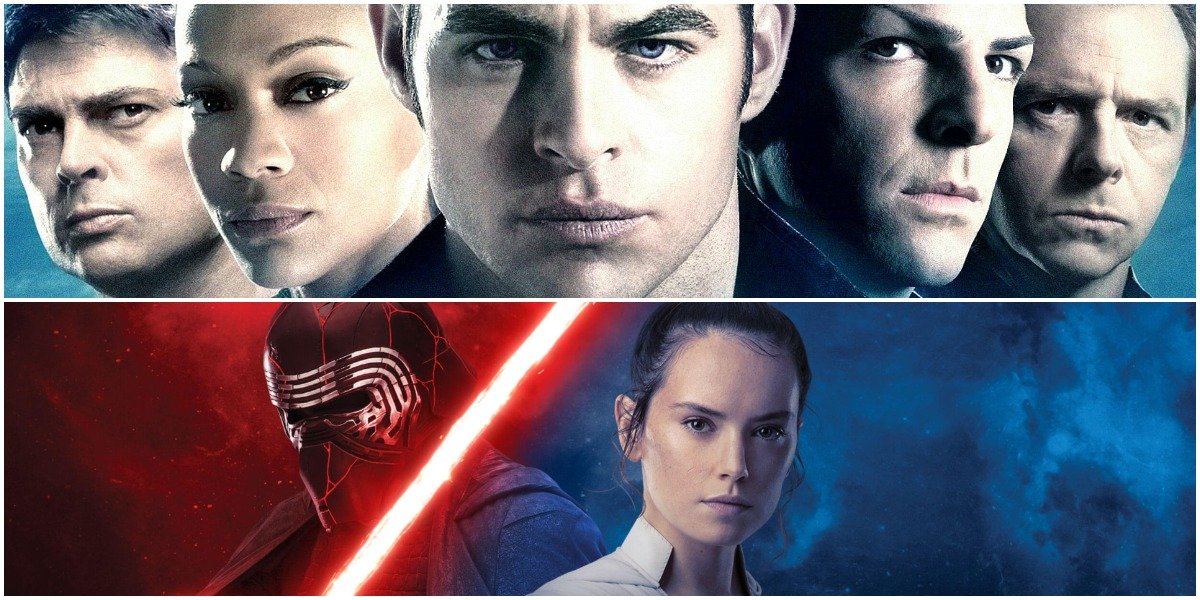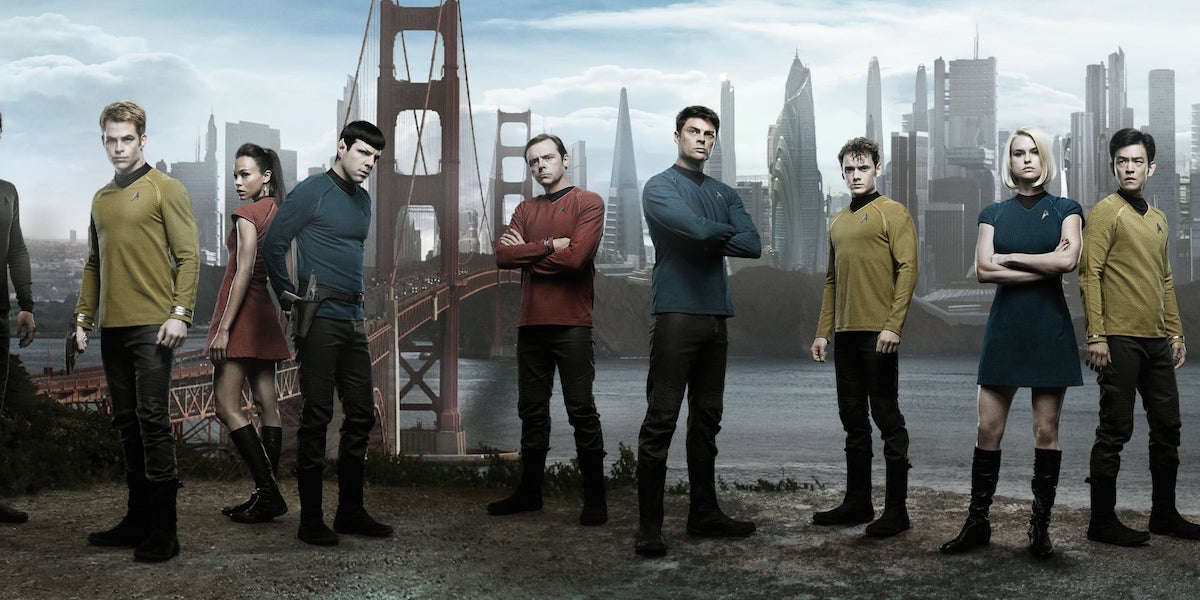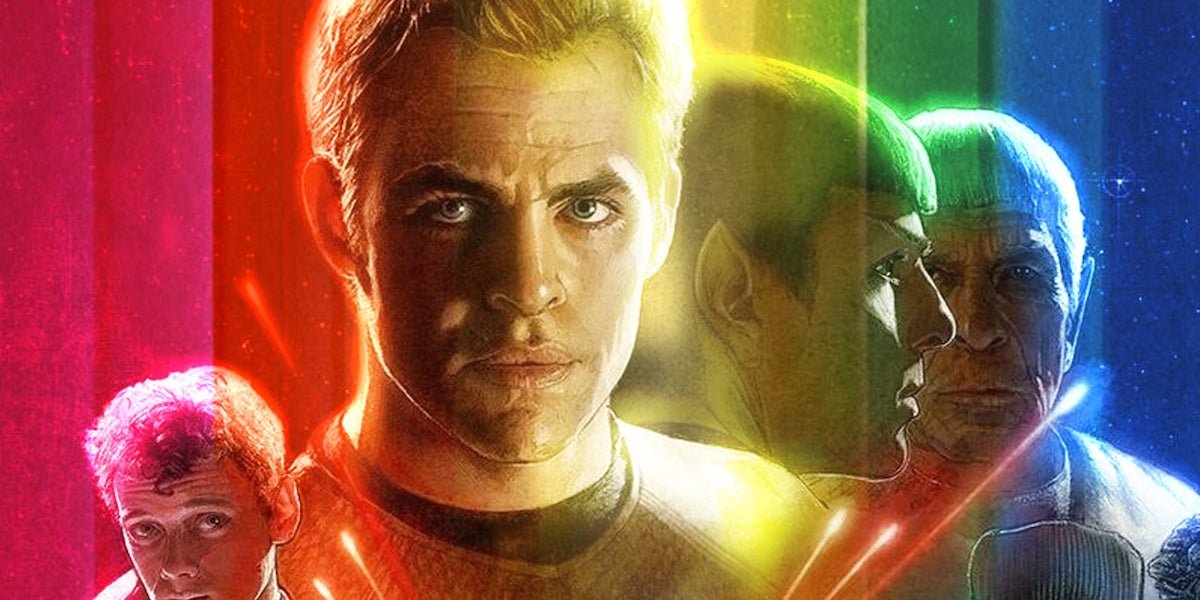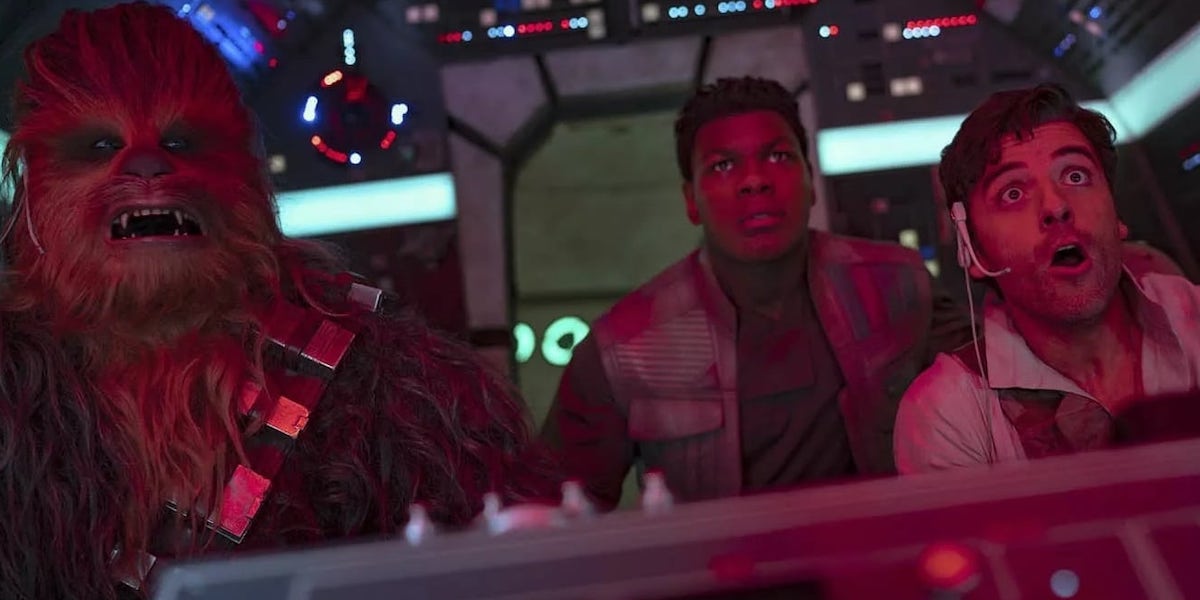Hear Me Out: JJ Abrams’ Star Trek Movies Are Better Than His Star Wars Films

Your Daily Blend of Entertainment News
You are now subscribed
Your newsletter sign-up was successful
Say what you will about JJ Abrams (and film audiences often have a lot of opinions about his features), but the man has a Hollywood credit that no one else can claim. He has directed films in both the Star Wars and Star Trek franchise. That type of crossover is virtually impossible – and our only comparison seems to be James Gunn transitioning to DC for The Suicide Squad after helming to Guardians of the Galaxy films for Marvel Studios.
Coincidentally, JJ Abrams also has two movies in what has become a recent trilogy of Star Wars and Star Trek films. They don’t line up the same way. Abrams did back to back Star Trek movies before passing the torch to Justin Lin for 2016’s Star Trek Beyond. Over on the Lucasfilm side of the fence, Abrams helped revive Star Wars with the spectacular The Force Awakens, but let Rian Johnson play in the sandbox before agreeing to land the plane with Star Wars: The Rise of Skywalker.
Given the fact that JJ Abrams has two movies in each series, it’s time to do what any movie-loving fan base would do (especially when we are in quarantine and are binging movies that we already own and have seen 1,000 times). We’re going to compare the four films and determine which series is better. And for me – while it’s close – I have to give the edge to Abrams’ work in the Star Trek saga over his two recent Star Wars movies. Here’s why:

The Star Trek Cast is Better
This one’s hard to argue against. JJ Abrams faced what seemed to be an uphill battle when rebooting the Star Trek franchise but finding new actors to play roles that are forever linked to actors like William Shatner, Leonard Nimoy, DeForest Kelley and Nichelle Nichols. Abrams’ 2009 reboot, Star Trek, launched what has become known as the Kelvin timeline (in honor of the USS Kelvin) and rolled out with younger actors in the signature roles.
And he knocked it completely out of the park.
Chris Pine’s Kirk is brash, arrogant, impatient, impulsive and dangerously cocky. He updates Shatner’s campy confidence and applies it to contemporary action formulas. He is brilliantly counterbalanced by his “man of science,” Zachary Quinto’s cold and analytical Spock. As in the television series (and the movies it inspired), these two heroes work well together because of their opposing approaches, and Pine and Quinto are able to establish their own dynamic while also paying tribute to fans’ expectation of Kirk and Spock.
Beyond the two leads, Abrams nailed the casting for every member of the USS Enterprise. This includes the gruff Bones (Karl Urban), the overwhelmed Scotty (Simon Pegg), the alluring Uhura (Zoe Saldana), the composed Sulu (John Cho) and the dedicated Chekov (the late Anton Chekov).
Your Daily Blend of Entertainment News
This isn’t a slight against Abrams’ Star Wars casting. Daisy Ridley and Adam Driver actually hold down the Dark and Light as Rey and Kylo Ren, while Oscar Isaac and John Boyega are welcome additions. But their characters aren’t as pivotal to the success of the series (and are a little underused), while characters played by Lupita Nyong’o, Domhnall Gleeson and Gwendoline Christie went ultimately unfulfilled, giving Trek the advantage in this category.

Abrams’ Star Trek Makes Better Use of the Franchise’s Past
JJ Abrams loves referencing the history of his chosen franchises as he also moves them forward. But there’s no denying that the inclusion of Prime Timeline Spock (Leonard Nimoy) in 2009’s Star Trek was more seamless and essential to the overall story than was the inclusion of Harrison Ford, Mark Hamill or Carrie Fisher in the latest Star Wars trilogy.
Nimoy’s Spock, thanks to time travel, interacts with the younger versions of himself and his crew when he fails to prevent the destruction of a race led by Nero (Eric Bana). His actions trigger the plot, and Prime Spock essentially has to mend the fences between Pine and Quinto so they can ultimately prevail.
I’m not certain that Ford, Hamill and Fisher ended up being essential to the story being told in the latest Star Wars trilogy because I don’t think Lucasfilm had a firm grip on the story they wanted to tell. Was it a redemption story for Ben Solo? Was it an ascension story for Rey? Was it the classic “Rebels versus Empire” battle that has characterized Star Wars for decades? The answer ended up being “yes” to all of those, which means that it didn’t give proper attention to any of the subplots, and so the use of the original actors amounted to nostalgia with narrative heft.
Even Mark Hamill agrees with that stance, largely.
JJ Abrams never tried to shoehorn in other original Star Trek actors, so we’ll never know how he might have tried to use, say, William Shatner in the Kelvin timeline. But based on what we saw, I think Abrams did a better job of including the past in Trek than he ultimately did in Star Wars.

Into Darkness is Less Messy Than The Rise of Skywalker
Listen, this largely boils down to Star Trek Into Darkness versus Star Wars: The Rise of Skywalker. Because both fanbases would likely agree that JJ Abrams’ first steps into both sagas were spectacular, and his follows ups had issues.
Which movie’s issues are more easily overlooked? My pick is Into Darkness. The biggest strike against Star Trek Into Darkness revolves around Khan (Benedict Cumberbatch), and the initial Mystery Box approach to his character. Desperate to protect the “twist,” everyone swore up and down that Cumberbatch was not playing Khan. Surprise? He totally was.
Which is fine. You can bring Khan into the Kelvin timeline. But Into Darkness couldn’t break out of the shadow of the superior Star Trek: The Wrath of Khan, and Abrams and his screenwriters never really decided if they wanted to homage the 1982 film, completely remake it, or strike off on their own. Also, they killed Kirk (Chris Pine) and brought him back… in the same film? Who thought that was a good idea?
But JJ Abrams’ Star Wars: The Rise of Skywalker has bigger issues that can’t be overlooked, and he really struggled (in my opinion) to bring closure to a 40-year-old saga. Maybe no one could have successfully brought closure to the entire Star Wars series? And Abrams faced obstacles no one could have overcome (the loss Carrie Fisher being the biggest). But the return of Palpatine in Rise of Skywalker felt way more egregious of a nostalgia grab than Khan did in Into Darkness. Too much of Rise seemed to directly contradict Rian Johnson’s The Last Jedi (particularly with regards to Rey and her destiny). I find Abrams’ second Star Trek to be far more forgivable than his second Star Wars movie, which is another check in the Kelvin column.
So, have I won you over? I Tweeted this opinion the other night, and expected to get slammed. Instead, I discovered that a lot of people agreed with me. But that’s social media, and most folks on there are insane. What say you, CinemaBlend readers? Vote in the poll, and let’s settle this, once and for all.
This poll is no longer available.

Sean O’Connell is a journalist and CinemaBlend’s Managing Editor. Having been with the site since 2011, Sean interviewed myriad directors, actors and producers, and created ReelBlend, which he proudly cohosts with Jake Hamilton and Kevin McCarthy. And he's the author of RELEASE THE SNYDER CUT, the Spider-Man history book WITH GREAT POWER, and an upcoming book about Bruce Willis.
